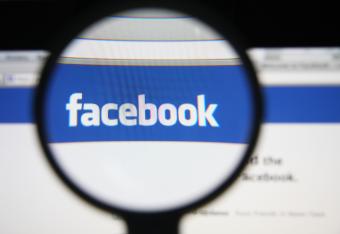
Although the social networking site has nearly 2 billion monthly active users worldwide, Facebook only sprang into existence in 2003. In the past several years, it has gained popularity not only in college circles, but among people of every age from every walk of life.
The Harvard University Origin Story
The very first incarnation of Facebook was at Harvard University.
Facemash and Hot or Not
Mark Zuckerberg, a sophomore at the time, created the site Facemash in October 2003. He created a version of the popular site Hot or Not exclusively for Harvard students.
Like Hot or Not, Facemash would show the user two pictures of people (normally young women) and ask the user to rate who was more attractive. In the case of Facemash, the young women displayed were members of Harvard's nine houses.
In order to get the site to work, Zuckerberg had to hack into Harvard's private network and grab photos from each house's dormitory ID pictures. Within a few days, the site was shut down by the Harvard administration. Understandably, Zuckerberg was charged with a breach of security and was set to be expelled. The charges were eventually dropped, and he was allowed to stay at Harvard.
The Creation of The Facebook
In February 2004, Zuckerberg used his knowledge from his last project to create "The Facebook." Many universities offer their students face books (literally books of faces) that help students recognize one another by name. Zuckerberg updated the idea for the 21st century with the creation of this website.
Within the first 30 days of the site's creation, over half of the undergraduates at Harvard were members of The Facebook. Due to the popularity of the site, Zuckerberg brought on Eduardo Saverin, Dustin Moskovitz and Andrew McCollum to help further develop and promote the site.
In March 2004, the site expanded to three more universities: Stanford, Columbia and Yale. Throughout the spring of that year, the site grew to serve the rest of the Ivy League schools and most Boston area schools.
Evolving Into Its Current Form
Up until June 2004, Facebook was officially called "The Facebook." However, the site was growing. To accommodate this growth, the base of operations moved from Boston to Palo Alto, California, and Zuckerberg dropped out of Harvard to focus on the company. He also hired Sean Parker to be the first president and got funding from Peter Thiel and Elon Musk, former PayPal executives.
Getting Members and Capital
The following year, The Facebook officially became Facebook. The company purchased the domain name www.facebook.com for $200,000. They also gained more than $13 million in funding and over 1 million members.
In 2006, several changes happened to the site, further bolstering its popularity. It rolled out the Newsfeed and opened the site up to all high school students and selected work networks.
The population of the site's user base grew even larger as younger students were allowed to join. Although rival social networking site MySpace had become very popular with teens, just as many within this age group were interested in being part of Facebook.
Finally, the social network opened up to anyone over the age of 13. This opened the doors for other types of social connections. Mom groups, activist groups, political groups, marketing groups and fan groups were able to join together on the site.
Gaining More Features
Over the course of the next few years, Facebook continued to update its features, allowing people to network with others based on different criteria. Users can join networks based on the city they live in, their workplace, their school and their region. The website helped people connect by suggesting friends who were in the same networks. These applications helped people grow friends lists quickly, further adding to its popularity.
Outranking MySpace
In April of 2008, Facebook outranked MySpace by total number of visitors for the first time. Facebook had 123.9 million unique visitors, and MySpace had 114.6 unique visitors. Although the two sites launched within a year of each other, the initial restricted membership of Facebook was partially to blame for its slow build toward dominance.
Adding Messenger, Apps and Emoticons
In 2011, Messenger was introduced, allowing users to talk with friends without using the Facebook app on mobile devices. The social media giant also added stickers and hashtags a few years later, as well as the ability to edit posts.
In 2016, the site gained instant games, where users can play without installing new apps, as well as Facebook Live, the ability to stream live video to all your friends. The like button expanded to include new reactions, like angry, sad, and love.
Major Acquisitions
Facebook has made over 60 acquisitions in an effort to improve the site. Some of the more notable include the following:
- FriendFeed (2009), adding the like button and updating the Newsfeed
- HotPotato (2010), gaining the ability to add check-in locations
- Instagram (2012), a popular photosharing site
- Face.com (2012), for facial recognition code
- Hot Studio (2013), for building brand tools
- Branch (2014), a platform for web conversations
- WhatsApp (2014), a mobile messaging platform
- Pebbles Interface (2015), for virtual reality and gesture-control technology
Facebook Today
In 2017, Facebook has made leaps and bounds since its humble beginnings. It is a diverse, multi-faceted social media platform that can be used to connect with friends, promote business and relax during down time. It allows you to play games, chat with friends and connect with businesses in real-time.
Due to Facebook's loss of younger users to new media giants like Snapchat and Instagram, it released Stories, allowing you to use video and images, along with fun filters, that will only be available for 24 hours before disappearing forever. So while Facebook has seen decline in recent years, it is still very much a household name due to its continued upgrades to meet user needs and emerging trends.







